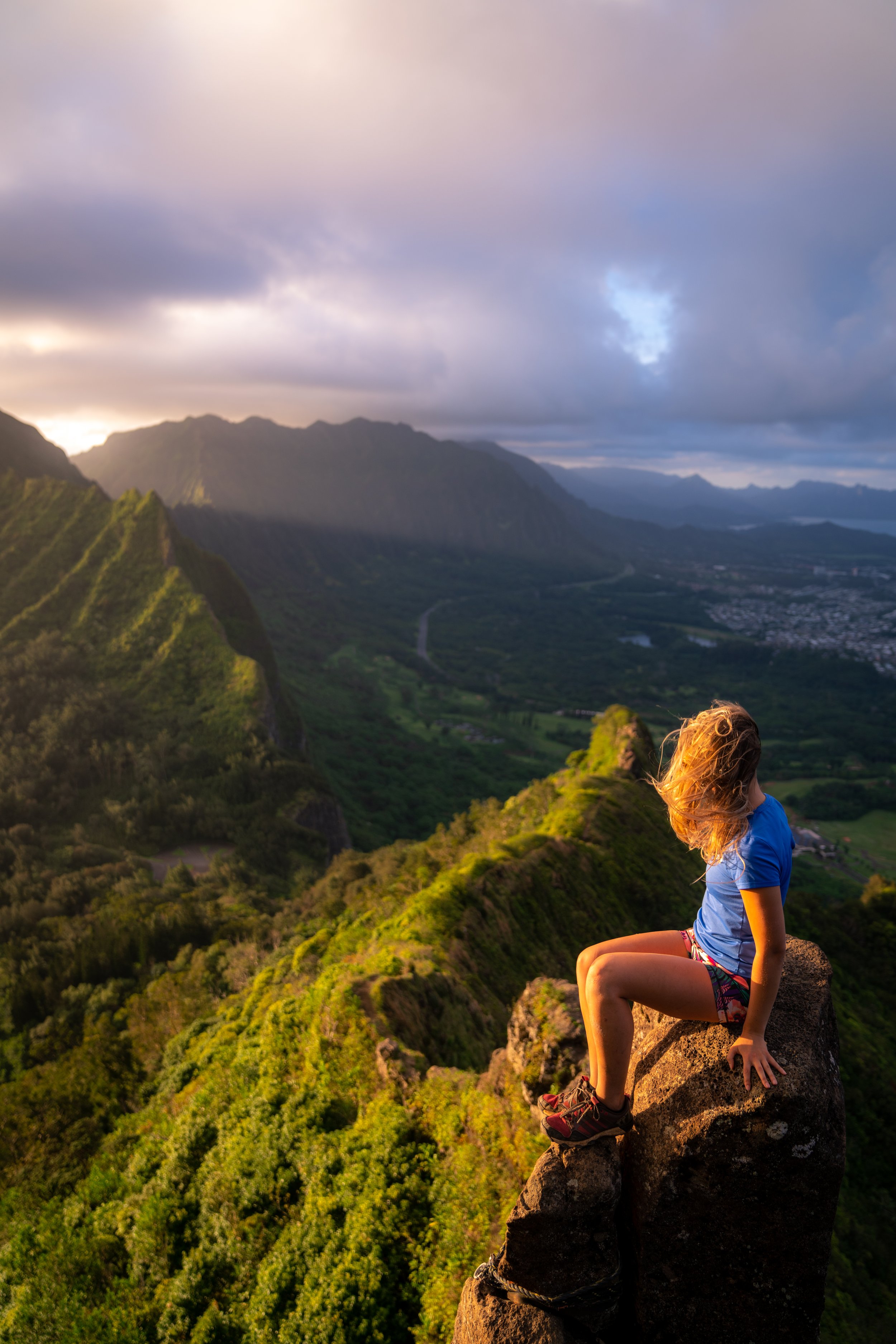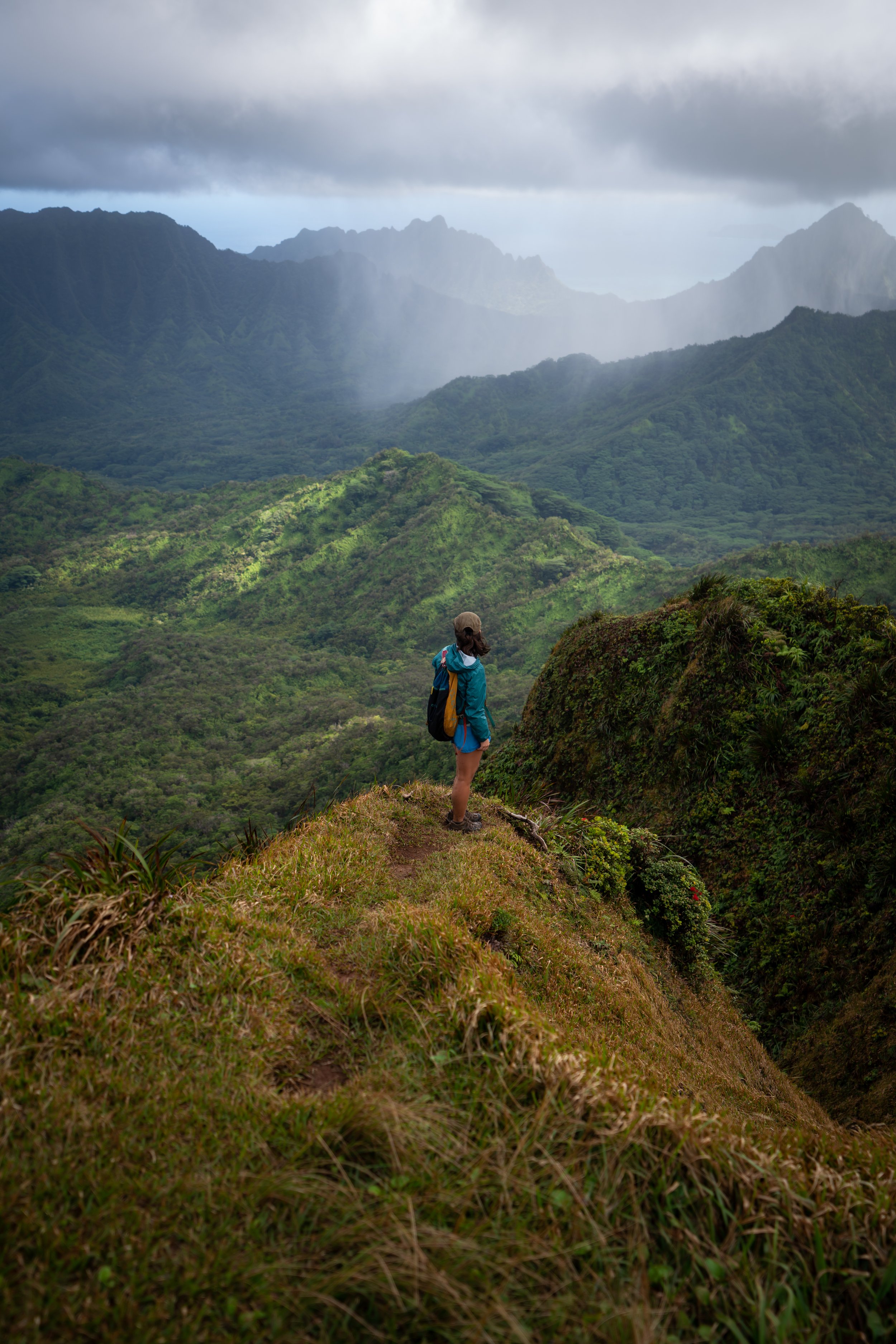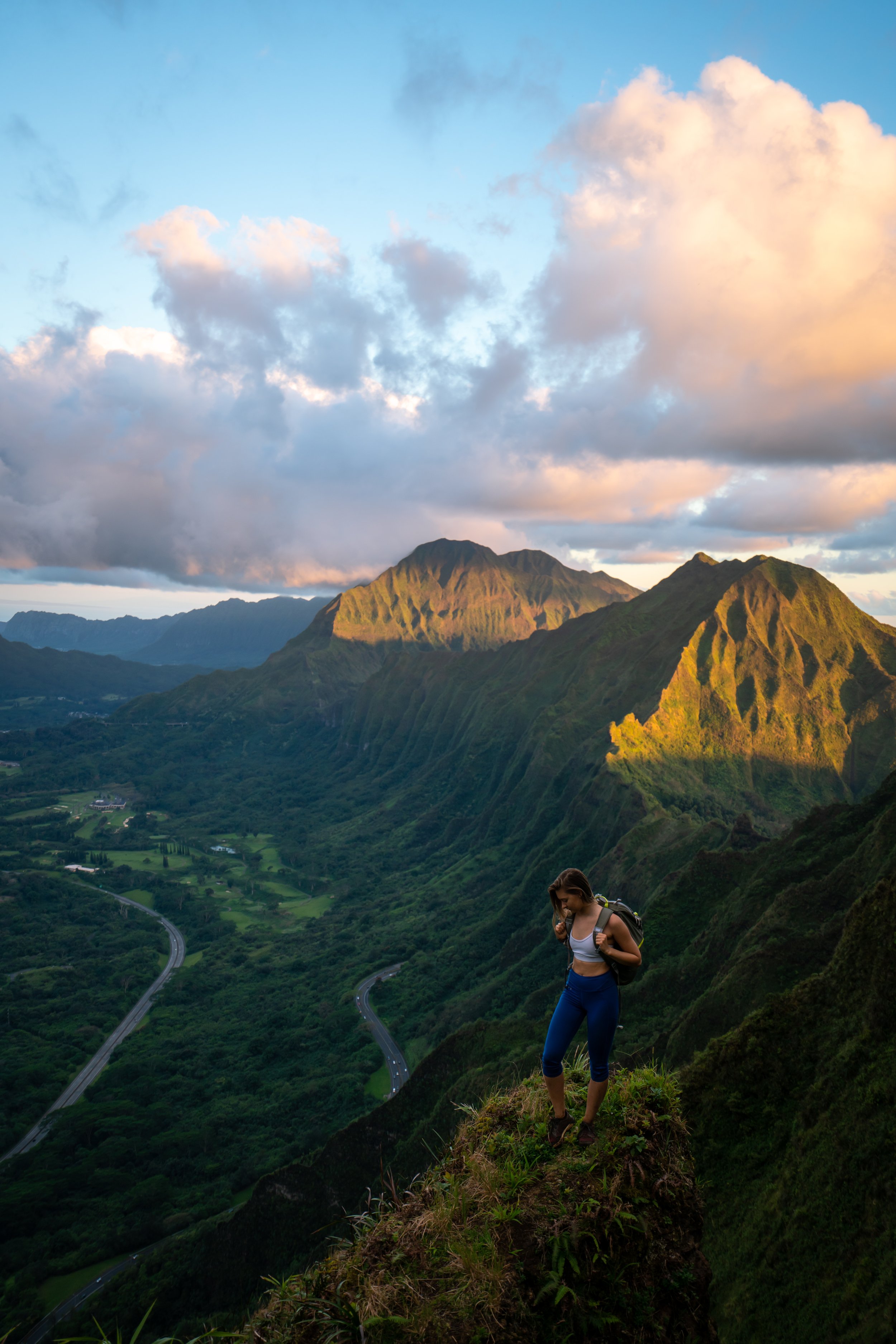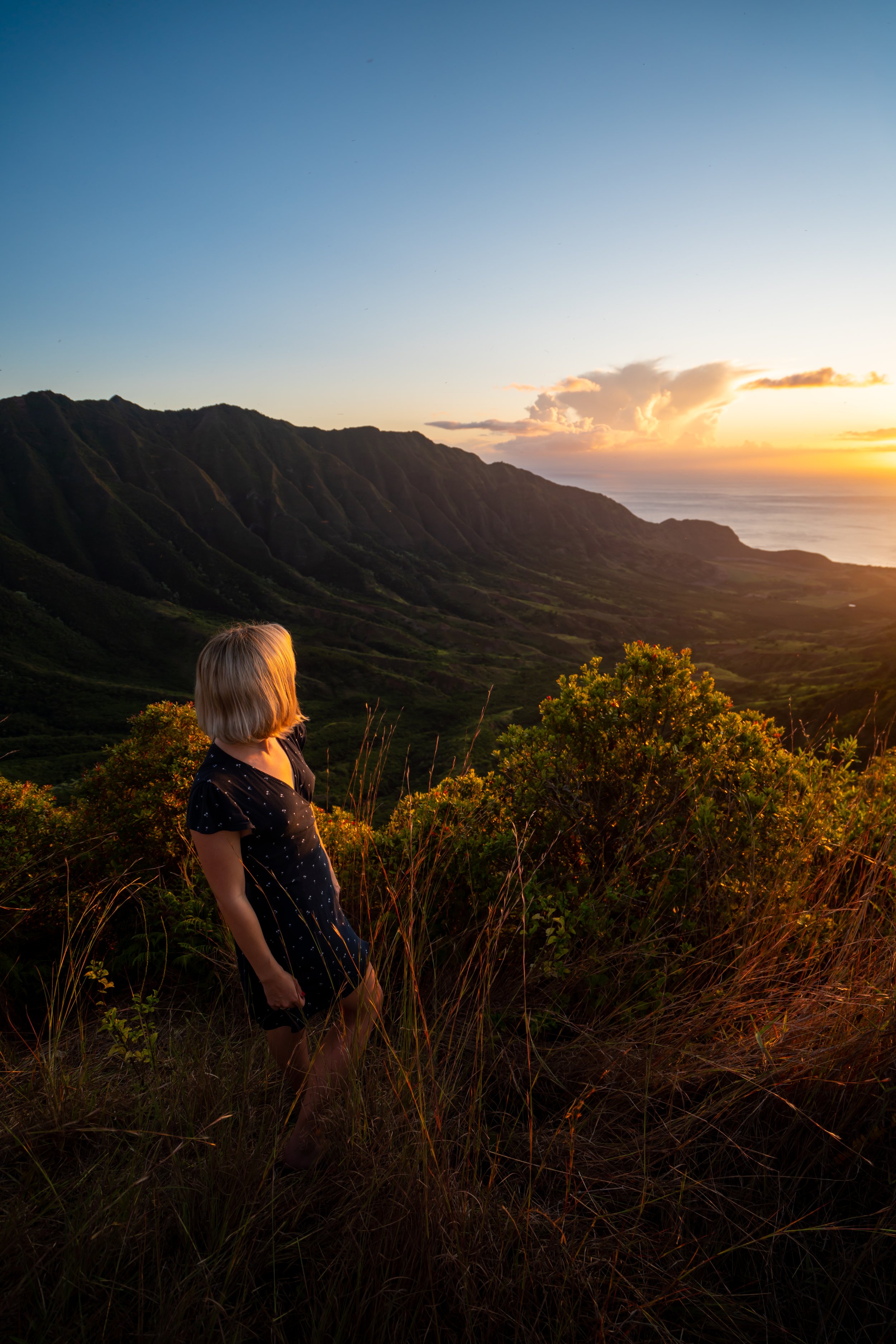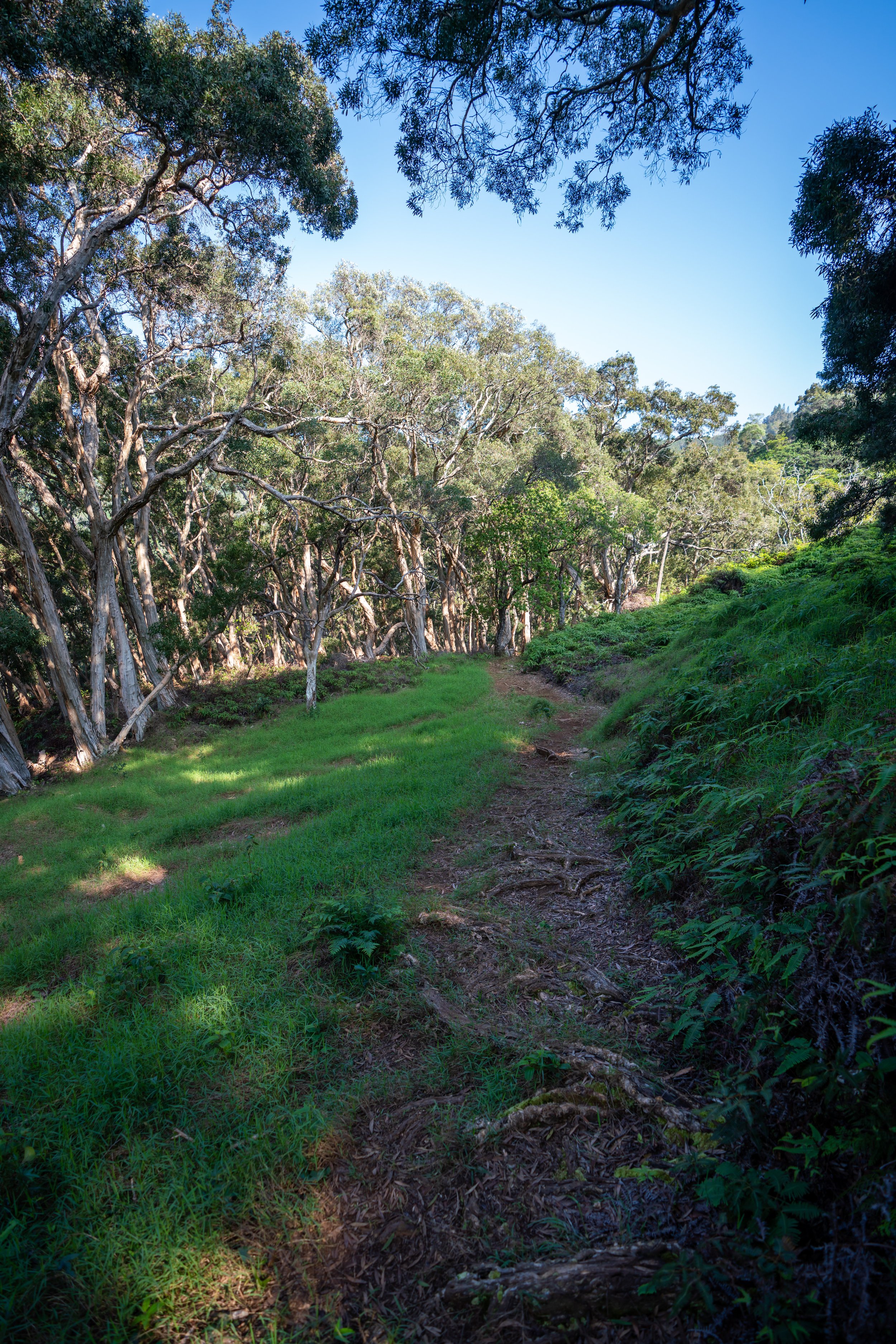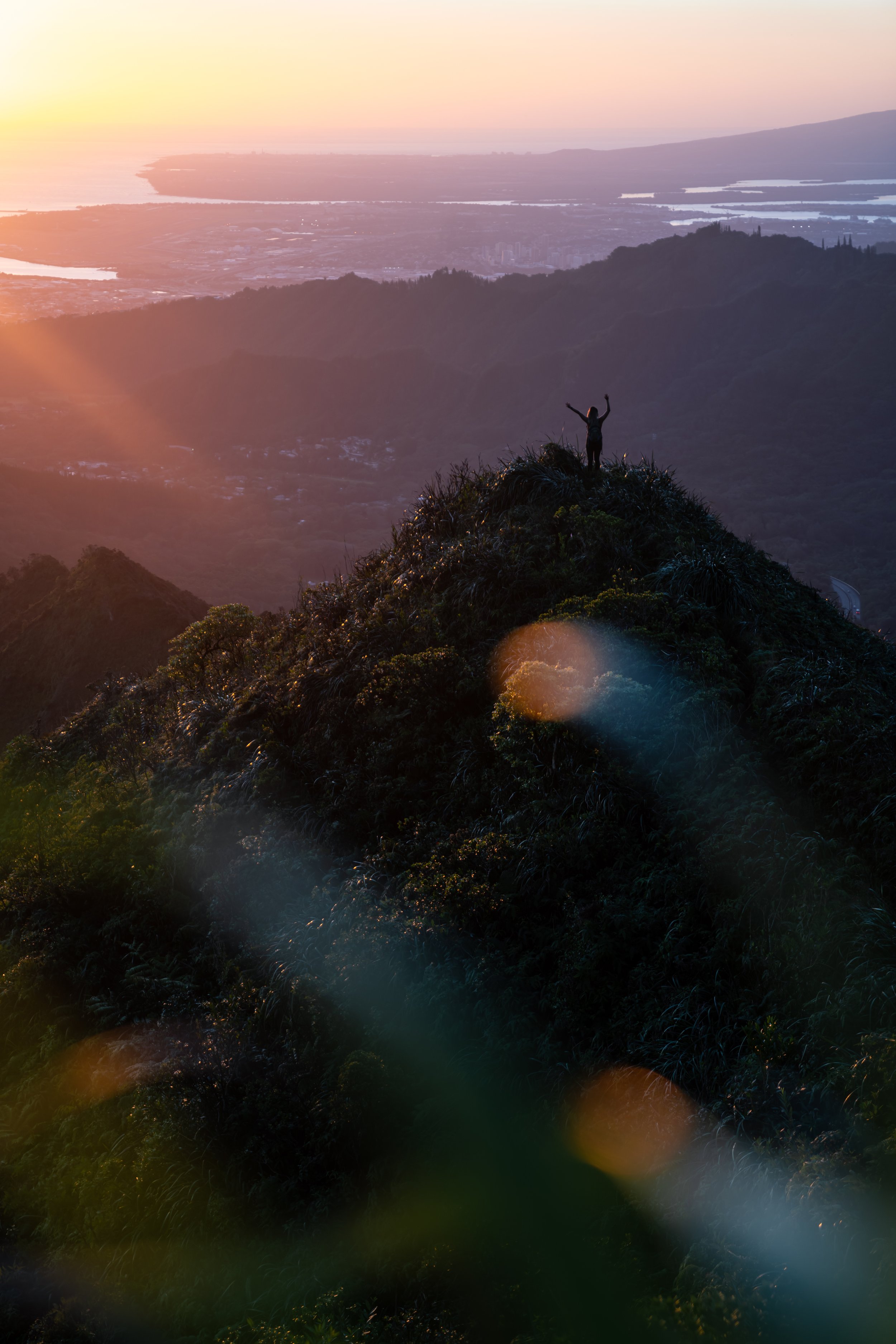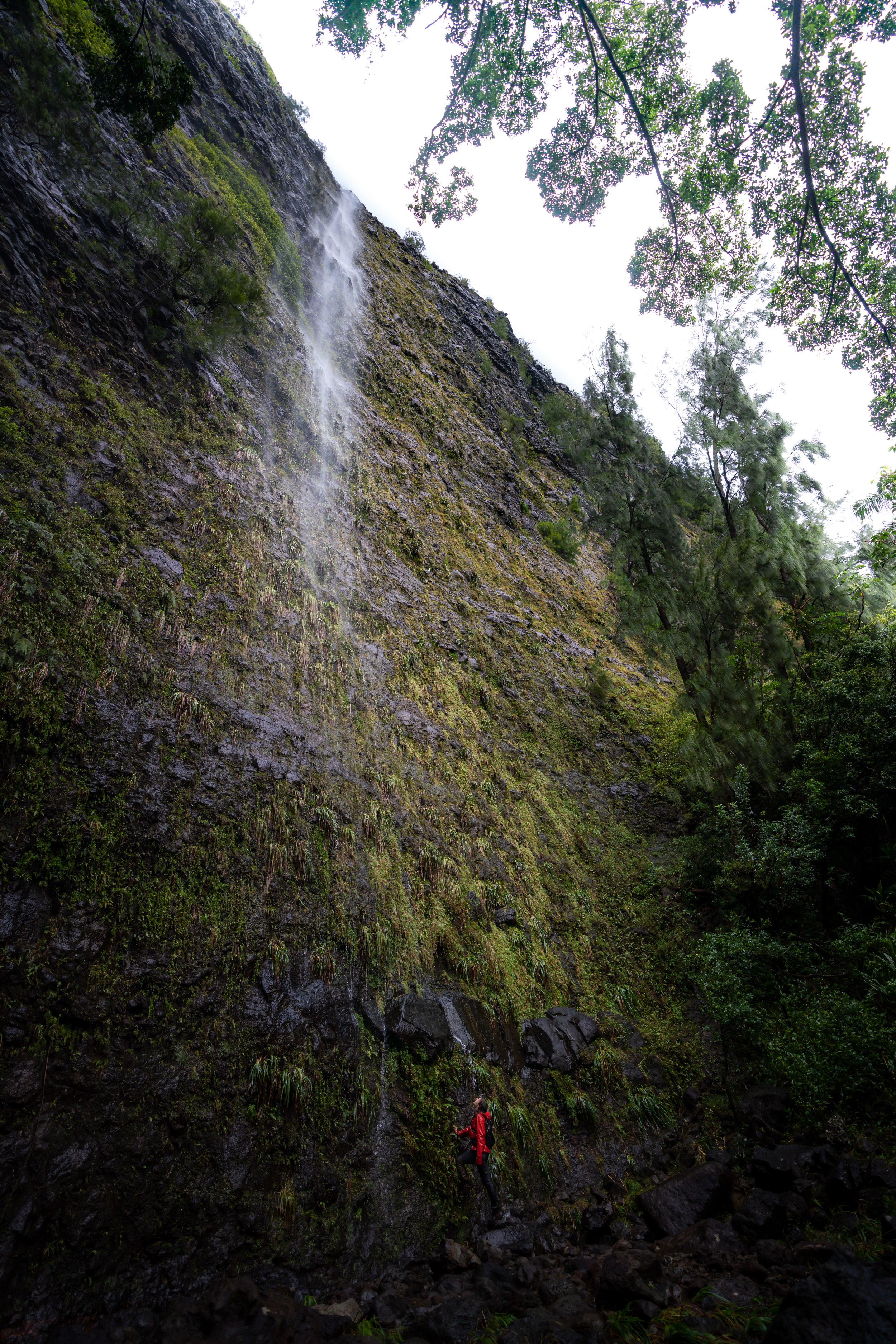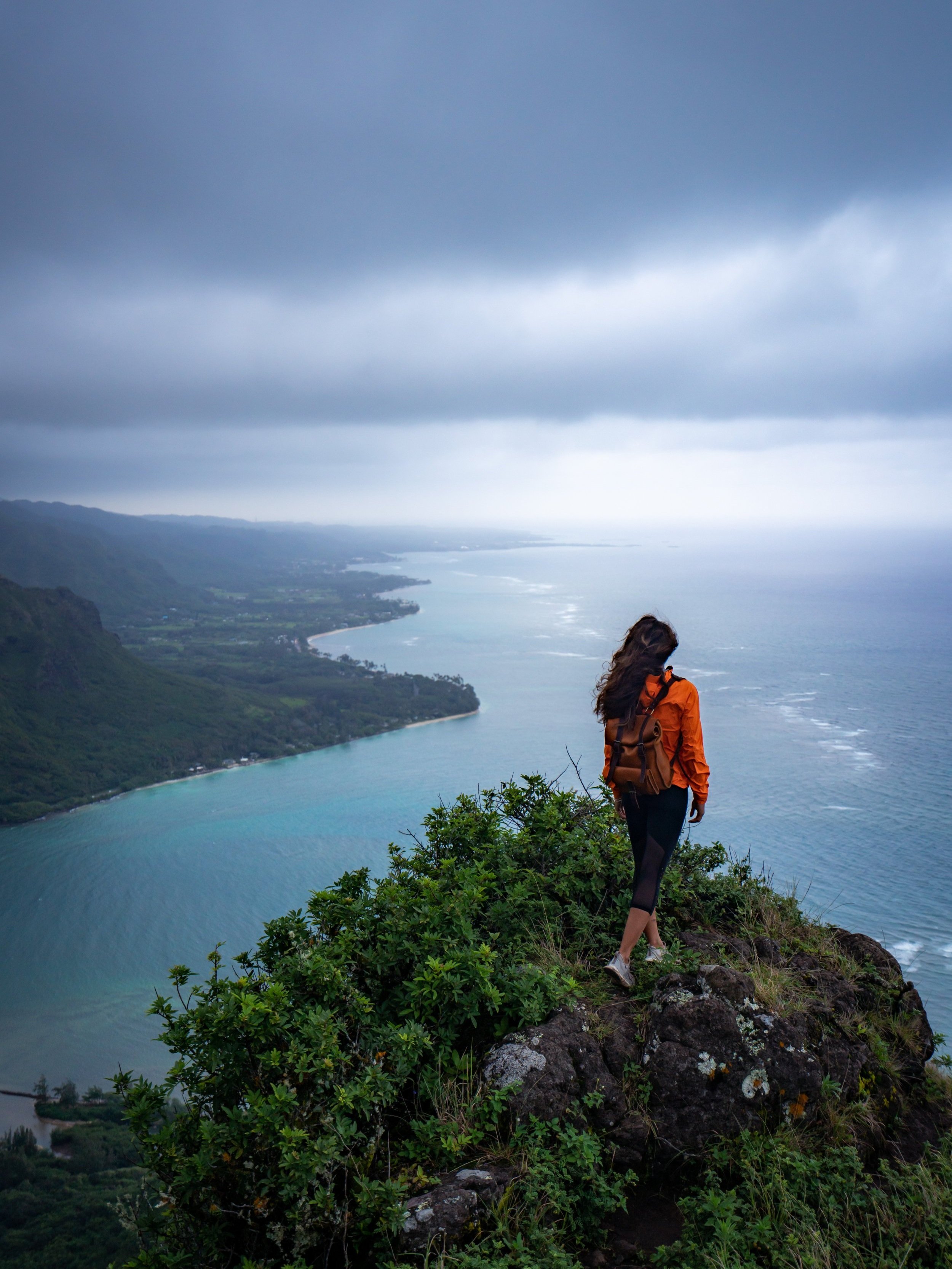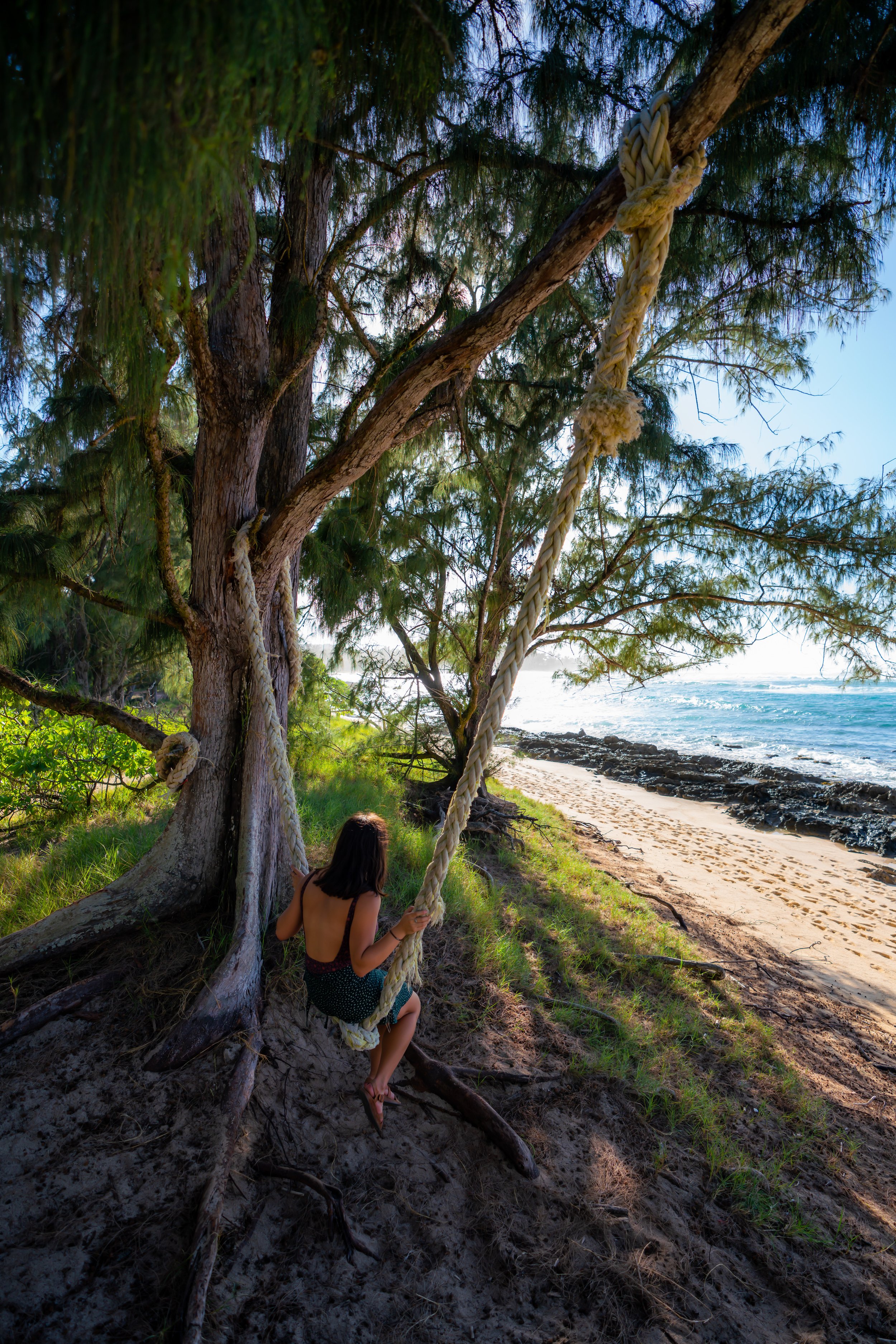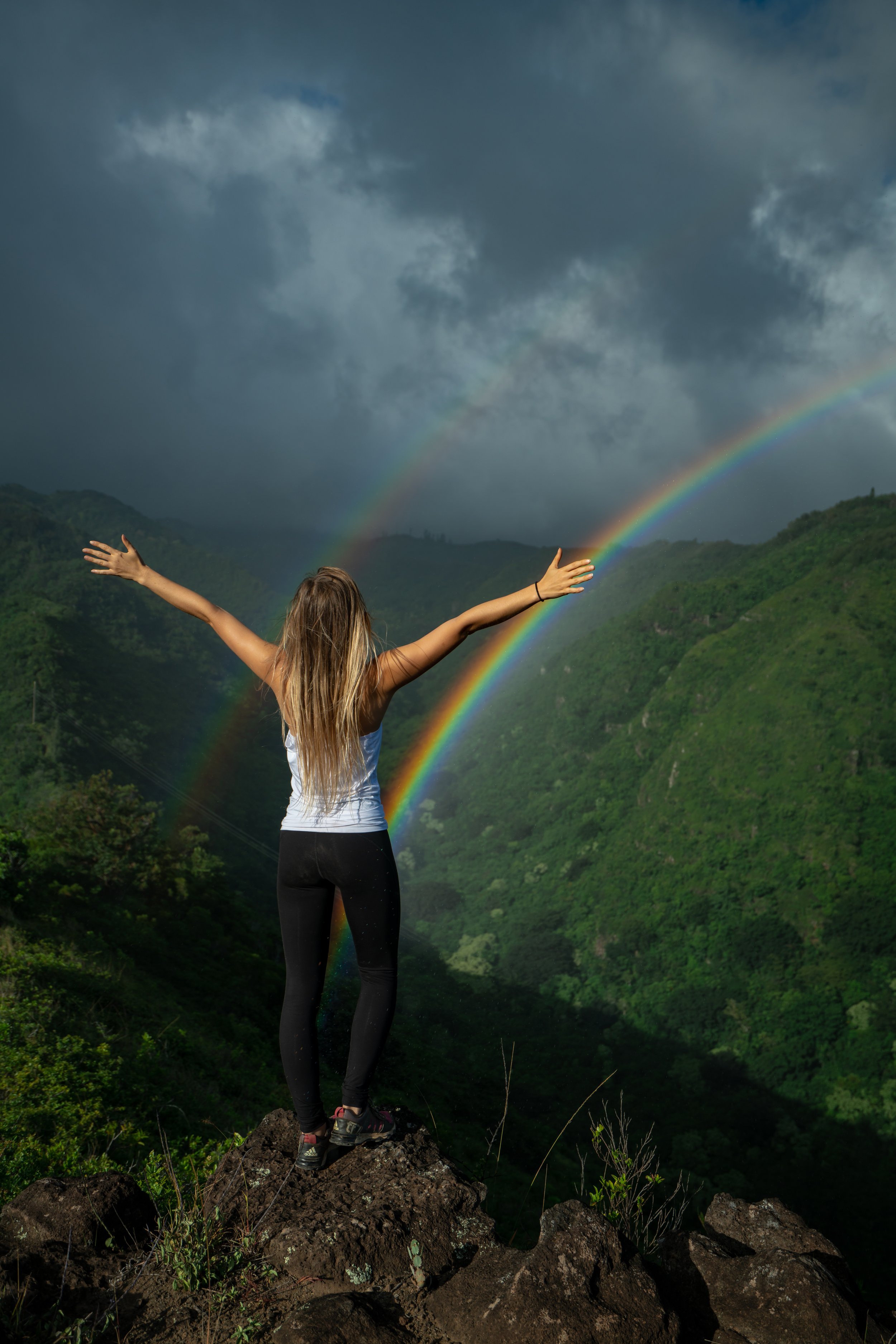Hiking the Kahuwaiʻiki Falls Trail on Oʻahu, Hawaiʻi
Distance: 2.0 miles / 3.2 km
The Kahuwaiʻiki Falls Trail in Mānoa Valley on Oʻahu is a short, but challenging, day hike to one of the island’s least-visited waterfalls!
That said, of the six waterfalls that line the back of Mānoa Valley—which include ʻAihualama, Mānoa, Kahuwaiʻiki, Luaʻalaea, Naniuapō, and Waiakeakua, from left to right or north to south—Kahuwaiʻiki is the most difficult hike, and yes, Kahuwaiʻiki Gulch should only be attempted by experienced Oʻahu hikers! I say this because the short roundtrip distance is a bad indicator of the trail’s overall difficulty.
All this to say, prepare for a remote, slow, muddy, and tedious adventure up the Kahuwaiʻiki Stream, which is not at all reflective of the easy Mānoa Falls Trail where the hike begins!
Kahuwaiʻiki Falls Trailhead Parking
Parking for the Kahuwaiʻiki Falls Trail is located in the same parking lot as Mānoa Falls.
There is a small fee to park here, but know that parking is illegal along the side of the short road prior to the paid parking area.
Google Maps Directions: Kahuwaiʻiki Falls Trailhead
Hiking the Kahuwaiʻiki Falls Trail
The trail for Kahuwaiʻiki Falls follows the Mānoa Falls Trail for the first 0.5 miles (0.8 km) before branching off into the Kahuwaiʻiki Stream.
Kahuwaiʻiki Stream-Mānoa Falls Junction
After 0.5 miles (0.8 km), the Kahuwaiʻiki Falls Trail branches off the Mānoa Falls Trail at this unmarked junction on the right-hand side.
That being said, if you reached the area in the second photo, you’ve gone too far and need to turn back.
Read My Separate Post: Mānoa Falls Trail
Kahuwaiʻiki Stream
You should know immediately if you left the Mānoa Falls Trail at the right junction because the stream crossing to the right of the trail will be the confluence of both the Waihī (Mānoa) and Kahuwaiʻiki Streams.
It’s also a good place to see if Kahuwaiʻiki Falls will be flowing because the waterfall is rain-fed, meaning that the Kahuwaiʻiki Stream isn’t necessarily flowing at all times of the year.
At the start of the Kahuwaiʻiki Stream, there is no more trail. That’s what makes Kahuwaiʻiki the hardest waterfall to see in Mānoa Valley because you have to navigate your way up the gulch through all the previous storm debris.
Additionally, at the confluence, you can follow the ridge between the Waihī and Kahuwaiʻiki Streams for a little bit to save some time, but you need to know when to head back down into the stream before hiking too high.
This side trail up the ridge is only good for about 0.1 miles (0.2 km), so it’s probably easier to use it on the way out than in.
Warning
Other than Kahuwaiʻiki having no trail, the gulch also poses the highest flash flood risk of any waterfall in Mānoa Valley.
On account of all the debris and obvious rockfalls in Kahuwaiʻiki during periods of wet weather, I would avoid the gulch when it’s raining.
Even though it’s only 0.4 miles (0.6 km) from the confluence to the falls, there is essentially nowhere to escape an impending flash flood because there’s too much storm debris that would limit your ability to hike fast. Also, escaping the gulch on either side would be nearly impossible when the walls get too steep.
You will likely find that it’s easier to hike up on one side of the stream over another, but make sure that you’re always following the water.
On the left side of Kahuwaiʻiki, there is a small fork in the stream that could be easy to follow if you’re not paying attention.
I have to imagine that it doesn’t go very far, but it’s typically dry when Kahuwaiʻiki should be flowing.
Kahuwaiʻiki Falls
The beautiful Kahuwaiʻiki Falls is the end of the trail, and in my experiences, the mosquitoes have either been non-existent or at their worst.
Either way, I recommend wearing long sleeves and hiking pants, as described in the section below.
Hawaiʻi Hiking Pants
The pants below are my recommendations that hold up the best with the overgrowth here in Hawaiʻi, but with any hiking pants that need to be durable, make sure that they are at or near 100% nylon. This is really the most important factor!
You will find these pants useful for countless trail across this blog.
Native Plants on the Kahuwaiʻiki Falls Trail
The Mānoa and Kahuwaiʻiki Falls Trail are relatively low-elevation trails for Hawaiʻi, meaning that they are predominately covered with non-native/ invasive species.
However, there are a few to look out for like the ʻĒkaha fern in the photo below, Hau trees, and Māmaki located randomly along both trails.
That being said, if you are curious about trying the native Hawaiian Māmaki tea, I kindly ask that you don’t harvest Māmaki from our native forests but, instead, buy from one of the local reputable vendors, such as those listed below.
If you would like to learn more about these and other native Hawaiian plants from across the islands, check out my separate post below.
Read My Separate Post: Native Hawaiian Plant Guide



